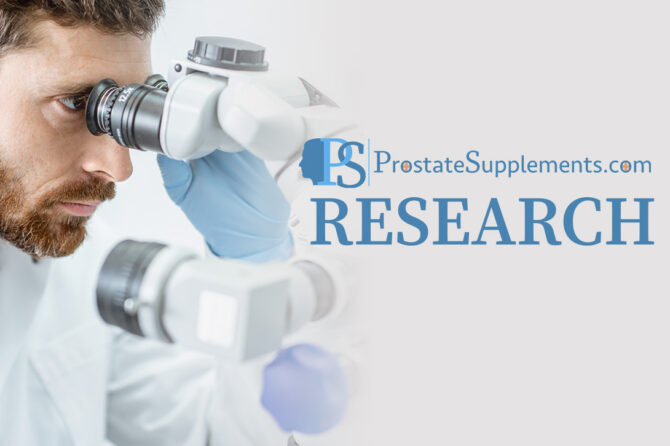
Niaouli Oil and Its Effects on Health – A Focus on Men’s Health, Prostate Function, and Urinary Benefits
Abstract
Niaouli oil, derived from the leaves of Melaleuca quinquenervia, has been a staple in traditional medicine, particularly in Australia, New Caledonia, and Madagascar. Known for its antimicrobial, anti-inflammatory, and mucolytic properties, this essential oil is gaining attention in modern integrative medicine.
1. Introduction
Niaouli oil, also known as MQV (Melaleuca quinquenervia viridiflora), is a cousin of the better-known Tea Tree oil (Melaleuca alternifolia). Traditionally used for respiratory infections, skin healing, and immune support, Niaouli oil contains powerful chemical constituents such as 1,8-cineole, viridiflorol, α-pinene, and limonene. These compounds underpin its biological activity.
While most studies emphasize Niaouli’s antimicrobial and respiratory applications, recent inquiries into its effects on the genitourinary system and hormone-modulated conditions suggest promising avenues for men’s health, particularly prostate wellness and urinary tract function.
2. Chemical Composition and Pharmacological Profile
The efficacy of Niaouli oil is attributed to its unique chemical profile. Key active constituents include:
- 1,8-Cineole (Eucalyptol) – Known for anti-inflammatory, mucolytic, and antimicrobial effects.
- α-Pinene – Demonstrates anti-proliferative properties in prostate and breast cancer cell lines.
- Limonene – Studied for its chemopreventive actions and possible hormone-modulating effects.
- Viridiflorol – A sesquiterpene alcohol with antimicrobial and potential anti-inflammatory activity.
These constituents interact with immune cells, inflammatory pathways (notably COX-2 and IL-6), and possibly hormonal receptors that are relevant to male physiology.
3. Niaouli Oil and General Health Effects
3.1. Antimicrobial and Antiviral Properties
Numerous studies have shown Niaouli oil’s potent antibacterial effects against gram-positive and gram-negative bacteria, including Staphylococcus aureus, Escherichia coli, and Helicobacter pylori. It also demonstrates antiviral activity, particularly against herpes simplex virus and influenza.
3.2. Anti-Inflammatory Effects
Through suppression of pro-inflammatory cytokines, particularly interleukin-1β, TNF-α, and COX-2, Niaouli oil exerts anti-inflammatory effects that may support chronic conditions, including those affecting the prostate and urinary system.
3.3. Antioxidant Potential
Niaouli’s terpenes show free radical-scavenging activity, suggesting systemic protective effects, including in the prevention of oxidative damage linked to chronic prostatitis or benign prostatic hyperplasia (BPH).
4. Niaouli Oil in Men’s Health
4.1. Prostate Health
Although direct clinical studies on Niaouli and the prostate are limited, several of its components—particularly limonene and α-pinene—have shown promise in prostate health research.
- Limonene has demonstrated anti-carcinogenic activity in preclinical models of prostate cancer by inhibiting the farnesylation of Ras proteins involved in cell proliferation.
- α-Pinene may modulate androgen receptor activity, which is central to prostate cell function and proliferation.
This suggests that regular aromatherapy or topical use (with dilution) of Niaouli oil may support prostate inflammation reduction and possibly contribute to lowering the risk of prostate enlargement.
4.2. Urinary Function and Benefits
Men suffering from BPH or chronic urinary tract infections may benefit from Niaouli oil’s:
- Diuretic-like effects, potentially reducing urinary retention.
- Antimicrobial activity, especially against urinary pathogens such as E. coli and Klebsiella.
- Smooth muscle relaxation, via α-pinene and 1,8-cineole, possibly improving urinary flow and reducing urgency.
While direct data on these mechanisms are sparse, parallel studies on eucalyptus oil, which shares a similar chemical profile, support these claims.
5. Therapeutic Uses of Niaouli Oil
5.1. Topical Application
- For prostate and pelvic pain: Dilute 2–3 drops of Niaouli oil in a carrier oil (like jojoba or sweet almond) and apply externally to the lower abdomen or perineum. Always perform a patch test.
- For urinary tract support: Apply diluted oil along the bladder region for localized effect.
5.2. Aromatherapy
- Inhalation of Niaouli oil may reduce systemic inflammation and stress, which indirectly supports hormonal balance.
- Combine with oils like frankincense or sandalwood for enhanced endocrine support.
5.3. Ingestion
Important: Ingestion should only occur under the supervision of a qualified healthcare provider or aromatherapist.
- Low-dose ingestion (e.g., 1 drop in honey or carrier oil, once daily) may offer systemic antimicrobial and anti-inflammatory benefits.
- GRAS (Generally Recognized as Safe) status for oral consumption is debated; therefore, ingestion is not recommended without expert oversight.
6. Safety, Contraindications, and Interactions
- Not suitable for children under 6 or during pregnancy.
- Caution in individuals with epilepsy or asthma due to high 1,8-cineole content.
- May interfere with CYP450 liver enzymes, impacting the metabolism of some drugs.
- Always use diluted (2–3% concentration for topical use) to avoid dermal irritation.
7. Limitations in Research
Despite promising bioactivity, clinical human trials focusing specifically on Niaouli oil’s effect on the prostate and urinary system are lacking. Current conclusions are based on:
- Animal studies,
- In vitro data,
- Extrapolation from similar essential oils like tea tree and eucalyptus.
Future randomized controlled trials (RCTs) are essential to validate its therapeutic role in men’s health.
8. Conclusion
Niaouli oil presents a compelling botanical ally in the support of men’s health, particularly regarding urinary function and prostate wellness. While it cannot replace medical interventions for conditions such as BPH or prostate cancer, its antimicrobial, anti-inflammatory, and potentially hormone-modulating effects make it a valuable complementary optionwhen used correctly. Scientific validation remains incomplete, but its traditional use, coupled with its chemical constituents, positions Niaouli as a noteworthy subject for further research in urological and men’s integrative medicine.
Leave a reply

Leave a reply